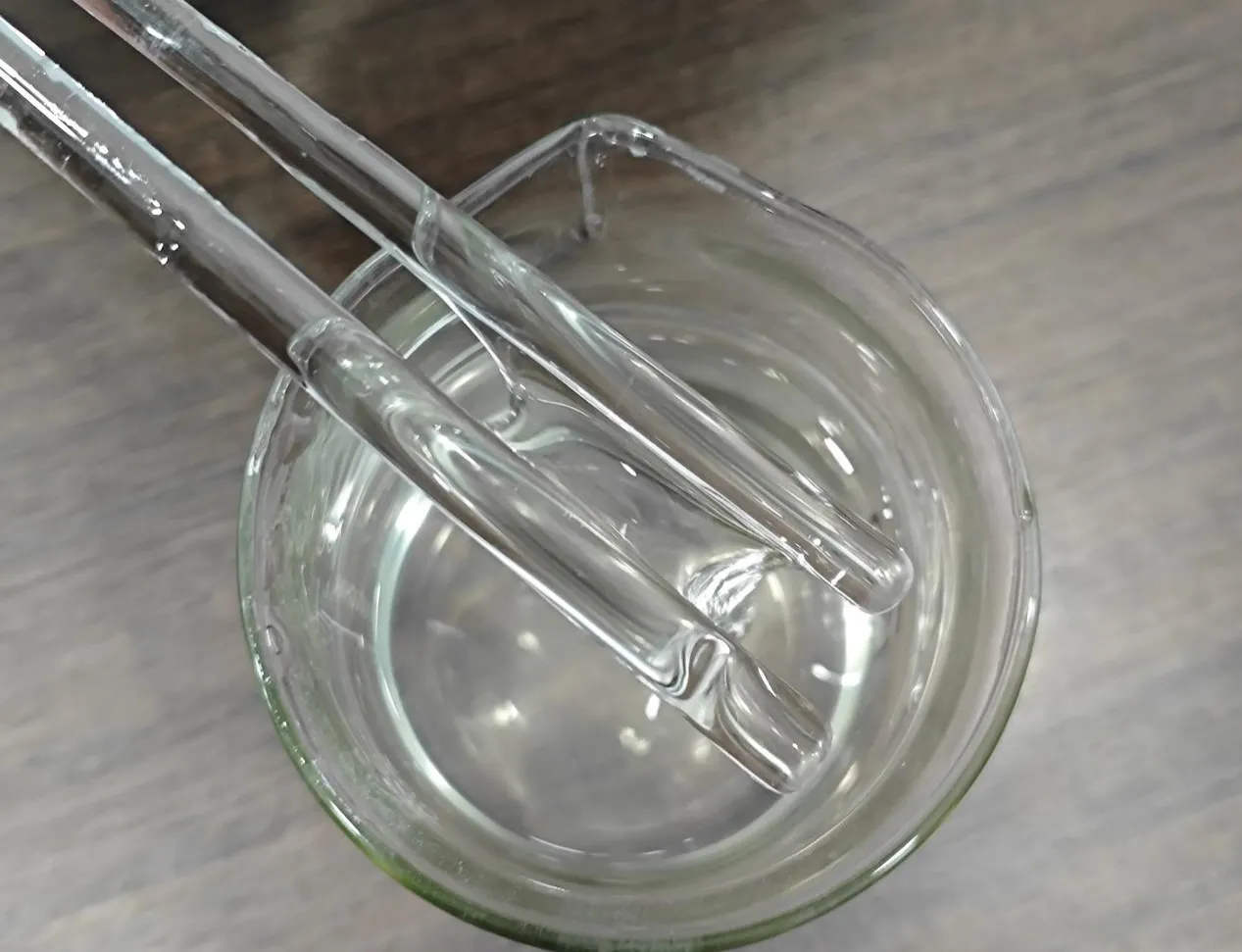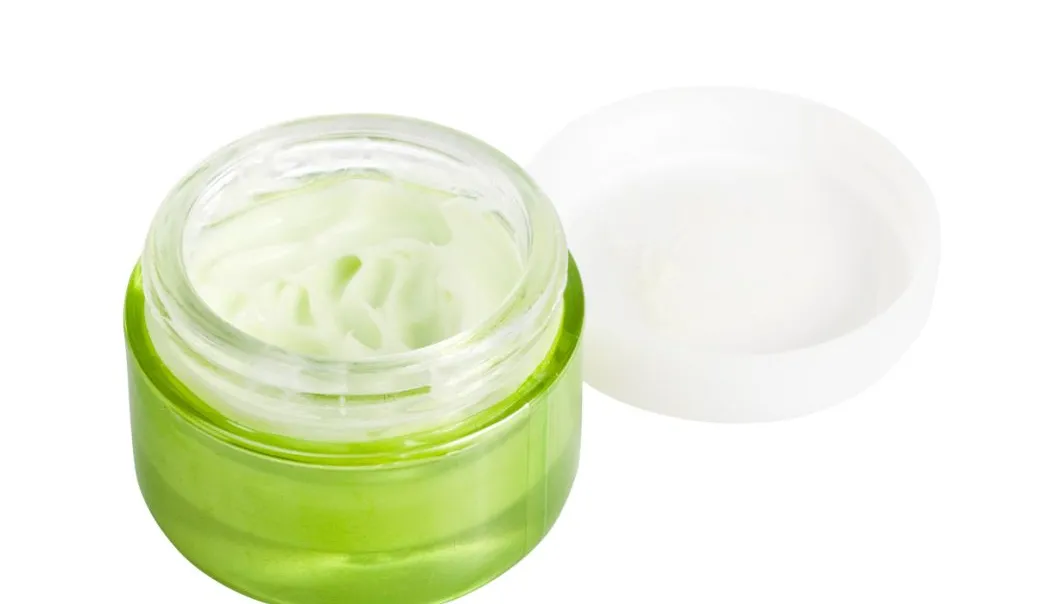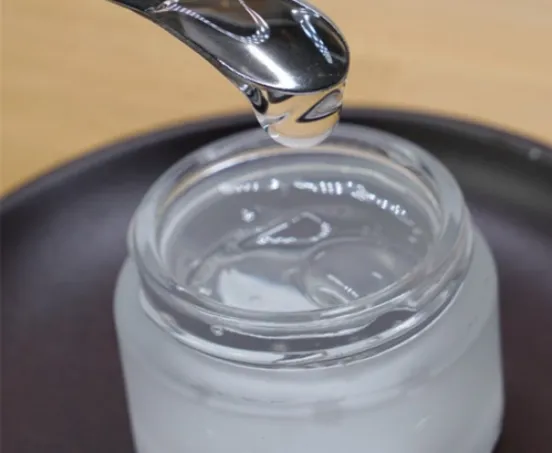
A Versatile Polymer in Cosmetics and Industry
هيدروكسي إيثيل السليلوز (HEC) is a non-ionic, water-soluble polymer derived from cellulose. Chemically, it is classified as cellulose 2 hydroxyethyl ether, which means hydroxyethyl groups are chemically bonded to the cellulose backbone.

Understanding Hydroxyethyl Cellulose: Structure and Properties
This modification enhances its water solubility and thickening capacity, making it highly valuable in numerous applications.
The hydroxyethyl cellulose structure consists of long chains of glucose units, each modified with hydroxyethyl groups. This molecular arrangement provides HEC with unique rheological behavior and film-forming abilities. Its hydroxyethyl cellulose properties include excellent thickening, stabilizing, and binding functions, which are crucial in both cosmetic and industrial formulations.
The viscosity of HEC solutions depends largely on the hydroxyethyl cellulose viscosity concentration—meaning the polymer’s viscosity can be controlled by adjusting its concentration in solution. This flexibility allows formulators to tailor product textures ranging from light gels to thick creams.

Hydroxyethyl Cellulose in Cosmetics, Skin Care, and Lubricants
The use of hydroxyethyl cellulose spans a broad range of fields, with particularly notable applications in cosmetics and personal care. In fact, hydroxyethyl cellulose in cosmetics is prized for its ability to improve texture, enhance stability, and provide a smooth, non-sticky finish. It’s often incorporated into moisturizers, lotions, shampoos, and facial cleansers.
When it comes to hydroxyethyl cellulose in skin care, its role is primarily as a thickener and stabilizer that maintains product consistency and ensures even application. Additionally, it contributes to hydration by forming a film that helps retain moisture on the skin surface.
An advanced form, hydrophobically modified hydroxyethyl cellulose, introduces hydrophobic groups into the polymer chain. This modification enhances its emulsifying and associative thickening properties, making it highly effective in complex formulations such as sunscreens, foundation creams, and oil-in-water emulsions.
Another exciting application is in hydroxyethyl cellulose based lubricants, where HEC provides a biocompatible, non-irritating base. These lubricants are often water-based, suitable for sensitive uses including medical and personal care products.
In the realm of formulation science, hydroxyethyl cellulose gel formulation is a popular technique for creating smooth, stable gels. The polymer’s ability to hydrate and swell in water allows it to thicken aqueous phases efficiently, producing gels with excellent clarity and desirable tactile properties.

Where to Buy and Market Availability
If you’re wondering where can I buy hydroxyethyl cellulose, many reputable chemical and cosmetic ingredient suppliers worldwide offer it in various grades and viscosities. Whether for small-scale cosmetic formulation or large industrial applications, HEC is available for purchase online and through specialized distributors. Searching for "hydroxyethylcellulose for sale" will yield options ranging from general-purpose grades to specialized, hydrophobically modified versions.
Choosing the right grade depends on your application, desired viscosity, and formulation type. Always consult technical datasheets and supplier recommendations to ensure compatibility and performance.
FAQ Title: Hydroxyethyl Cellulose: Your Top Questions Answered
What are the primary uses of hydroxyethyl cellulose?
The use of hydroxyethyl celluloseincludes thickening, stabilizing, film-forming, and binding in cosmetics, skin care, lubricants, paints, and construction materials.
What is hydrophobically modified hydroxyethyl cellulose?
Hydrophobically modified hydroxyethyl cellulosecontains hydrophobic groups that improve emulsification and thickening in oil-in-water cosmetic formulations.
How does hydroxyethyl cellulose contribute to skin care products?
In hydroxyethyl cellulose in skin care, it acts as a thickener and stabilizer, providing smooth texture and helping retain moisture on the skin.
Where can I buy hydroxyethyl cellulose?
You can find hydroxyethylcellulose for salefrom chemical suppliers, cosmetic raw material distributors, and online marketplaces specializing in formulation ingredients.
What determines the viscosity of hydroxyethyl cellulose solutions?
The hydroxyethyl cellulose viscosity concentrationrelationship means that solution viscosity increases with higher concentrations of HEC. This allows precise control of texture in formulations.
In summary, hydroxyethyl cellulose is a versatile, plant-derived polymer with critical roles across cosmetics, personal care, lubricants, and industrial uses. Its unique chemical structure and adaptable properties make it an essential ingredient for formulators seeking effective and reliable performance.
-
Wholesale Powder Water Reducing Admixture CP1000: High-Performance Concrete SolutionsNewsAug.04,2025
-
Water Reducing Admixtures in Concrete: Types, Mechanisms, and ApplicationsNewsAug.04,2025
-
Understanding Water Reducing Admixtures in Concrete: Types, Benefits, and Market InsightsNewsAug.04,2025
-
Understanding Redispersible Polymer Powder :Applications and Market InsightsNewsAug.04,2025
-
Redispersible Polymer Powder: Applications and Market InsightsNewsAug.04,2025
-
Polycarboxylate Water Reducers: High-Performance Solutions for Modern ConcreteNewsAug.04,2025





















